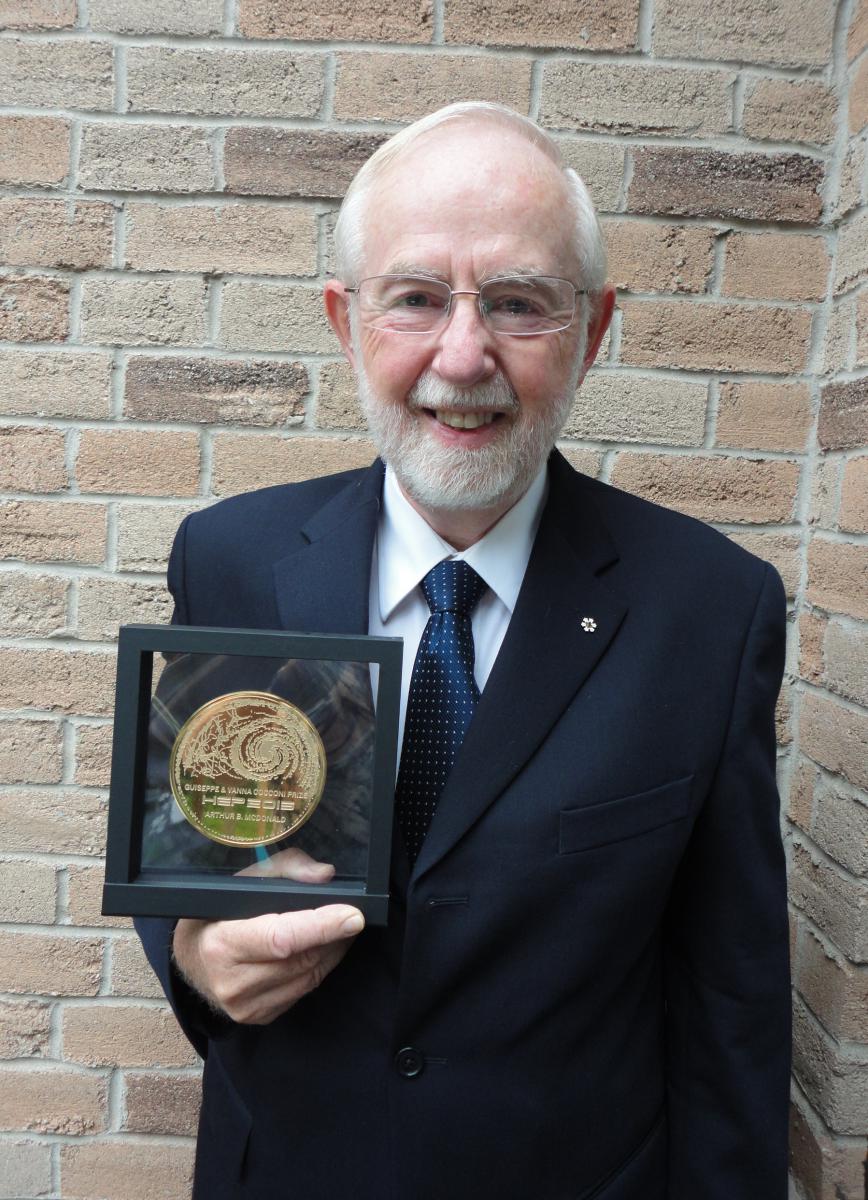Physics professor Art McDonald accepts international award for research on neutrinos
September 13, 2013
Share
 Dr. Arthur McDonald accepted the Giuseppe and Vanna
Dr. Arthur McDonald accepted the Giuseppe and VannaCocconi Prize on behalf of the Sudbury Neutrino
Observatory Collaboration.
By Rosie Hales, Communications Officer
Queen’s professor Arthur McDonald has accepted the internationally renowned Giuseppe and Vanna Cocconi prize from the European Physical Society for the research work of the Sudbury Neutrino Observatory (SNO) scientific collaboration, of which he is the Director.
The Prize was presented in Stockholm on July 22 to Professor McDonald and Professor Yochiro Suzuki, Director of the SuperKamiokande collaboration “for their outstanding contributions to the solution of the solar neutrino puzzle by measuring the flux of all neutrino flavors from the Sun with the SNO and Super-Kamiokande experiments”
The prize is awarded every two years at the European Physical Society-High Energy and Particle Physics (EPS-HEPP) Division Conference for outstanding contributions to the field of particle astrophysics and cosmology.
“It was an honour to accept the Giuseppe and Vanna Cocconi Prize on behalf of the Sudbury Neutrino Observatory Collaboration and to share this prize with our colleagues from the SuperKamiokande collaboration,” says Dr. McDonald
The SNO experiment took place two kilometres underground in an active nickel mine near Sudbury, Ont. The large neutrino detector is filled with 1000 tonnes of heavy water. Researchers observed neutrinos produced by nuclear reactions that power the sun and provided a clear indication that neutrinos change from one type to another before reaching the earth.
 Queen's in the World
Queen's in the WorldA neutrino is an elusive neutral subatomic particle with a mass close to zero.
The SNO results also provided accurate confirmation of detailed models for energy generation in the sun. The SNO collaboration included scientists from the Canadian universities Carleton, Laurentian, Guelph and UBC as well at the TRIUMF laboratory and international scientists from the US, UK, Portugal and Germany.
Presently, the SNO detector is being modified for future measurements of neutrinos and rare radioactive decays as part of the expanded SNOLAB underground science facility. The new SNO+ detector will provide one of the most sensitive measurements on the world of a rare form of radioactivity relevant to the processes that form matter in the early universe.
Queen’s students and scientists are participating in other experiments at SNOLAB that seek to observe elusive dark matter particles created in the Big Bang and known to make up about 25 per cent of the Universe.